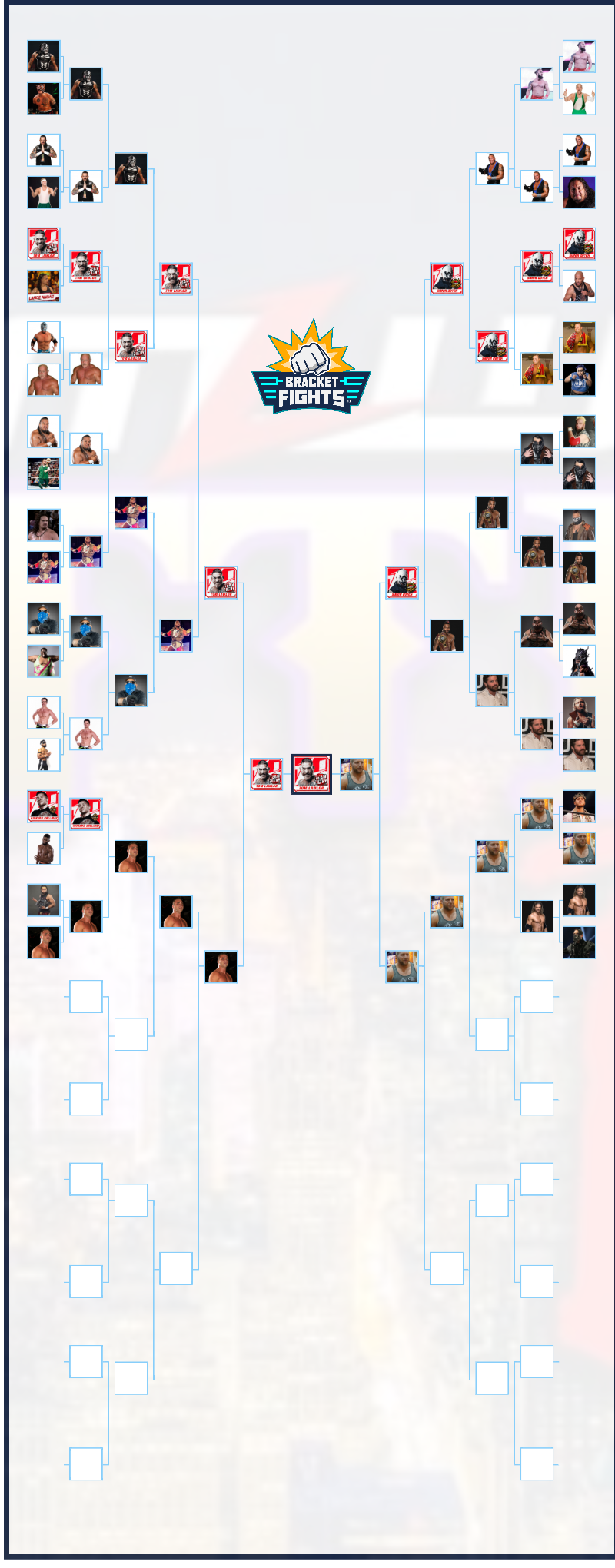Fortnite Developer Epic Games Accused Of Widespread Deceptive Practices

Table of Contents
Controversial In-App Purchases (IAPs) and Loot Boxes
Epic Games' business model heavily relies on in-app purchases (IAPs) within Fortnite. However, the design and implementation of these IAPs have drawn significant criticism, with many accusing the company of employing deceptive and predatory practices.
Predatory Design of IAP Systems
The design of Fortnite's IAP system is frequently cited as a major source of concern. Several elements contribute to this perception:
- Randomized Loot Boxes: Fortnite utilizes loot boxes, offering players a chance to obtain cosmetic items with varying rarity. The unpredictable nature of these boxes encourages repeated purchases in the hope of acquiring rare items.
- Timed Offers and Scarcity Tactics: Limited-time offers and the creation of artificial scarcity around certain items pressure players into making impulsive purchases. These tactics prey on the fear of missing out (FOMO).
- Psychological Manipulation: Bright colors, exciting animations, and celebratory sounds are used to create an emotionally charged experience around purchasing, reinforcing the association of positive feelings with spending money.
While precise spending statistics for individual players remain private, numerous reports and anecdotal evidence suggest significant player expenditure on these loot boxes, potentially exceeding what some players can comfortably afford.
Lack of Transparency Regarding Drop Rates
A critical point of contention is the lack of transparency surrounding the drop rates of items within loot boxes. Epic Games has consistently avoided publicly disclosing the precise probabilities of obtaining specific items. This opacity fuels accusations of deception, leaving players unsure of their chances of receiving desirable items.
- Industry Comparison: Many other games, particularly in regions with stricter regulations, provide clear drop rate information to players. The lack of this transparency in Fortnite is a notable contrast.
- Lack of regulation: The lack of concrete regulations on the disclosure of drop rates in many jurisdictions has empowered companies like Epic Games to avoid this level of transparency.
Misleading Marketing and Advertising Tactics
Beyond in-game mechanics, accusations of deceptive practices extend to Epic Games' marketing and advertising strategies.
Exaggerated Claims in Promotional Materials
Critics point to instances where Fortnite's promotional materials misrepresented the game's features or content.
- Example: Promotional videos sometimes showcased items or gameplay mechanics that were later either unavailable or significantly altered from their initial presentation.
- Visual Deception: Screenshots or videos have sometimes been accused of using misleading visual effects or editing to enhance the appeal of cosmetic items.
Targeting Vulnerable Demographics
Concerns exist regarding the targeting of younger, more vulnerable players through marketing tactics.
- Age Appropriateness: While Fortnite has a teen rating, its marketing frequently appears in channels easily accessible to younger children.
- Lack of Responsible Gaming Initiatives: The absence of robust responsible gaming initiatives within the game and its marketing further exacerbates these concerns.
Manipulative Game Mechanics and Pay-to-Win Allegations
Accusations against Epic Games also center on manipulative game mechanics that allegedly create a pay-to-win environment.
Pay-to-Win Elements Affecting Gameplay
While Fortnite is primarily a cosmetic-focused game, some argue that certain paid items provide a marginal competitive advantage.
- Faster Progression: Battle Passes and other paid items sometimes offer faster progression, potentially allowing paying players to unlock more powerful items or abilities sooner than free-to-play players.
- Cosmetic Advantages: While largely cosmetic, some argue that certain outfits or emotes can provide a slight psychological advantage in the game, distracting opponents or influencing their perception.
Gating Content Behind Paywalls
Access to certain content or features in Fortnite is often restricted behind paywalls.
- Exclusive Skins and Items: Many sought-after cosmetic items are only available through purchasing the Battle Pass or through direct purchase. This creates a sense of exclusivity and encourages spending.
- Impact on Player Experience: While not directly affecting gameplay, the gating of desirable cosmetic items could impact a player's enjoyment and sense of accomplishment.
Legal and Regulatory Scrutiny of Epic Games Practices
The controversial practices of Epic Games have not gone unnoticed by legal and regulatory bodies.
Past and Present Lawsuits and Investigations
While no major successful lawsuits have been filed directly against Epic Games for deceptive practices concerning Fortnite specifically, various investigations and regulatory actions regarding loot boxes and similar systems in other games have set a precedent for future legal challenges.
- International Examples: Several countries are actively exploring or implementing regulations concerning loot boxes and other similar in-game purchases. These regulatory actions highlight growing concerns surrounding these practices globally.
Potential Future Regulatory Changes
The increasing scrutiny of loot boxes and other monetization practices within video games points to potential future regulatory changes.
- Increased Transparency: The future may see a greater push for transparency in terms of drop rates and probability disclosures.
- Restrictions on Loot Boxes: Some jurisdictions may even move towards restricting or banning loot boxes altogether, particularly in games targeting younger audiences.
Conclusion
The accusations of widespread deceptive practices against Fortnite developer Epic Games raise serious concerns about fairness, transparency, and the potential exploitation of players. The use of manipulative in-app purchases, misleading marketing, and potentially pay-to-win elements paints a picture of a company prioritizing profit over player welfare. The key takeaway here is the need for greater consumer awareness, responsible gaming habits, and significant industry-wide changes towards greater transparency and ethical practices. Stay informed about the ongoing debate surrounding Fortnite Developer Epic Games and its business practices. Let your voice be heard and demand greater transparency and ethical practices from game developers. The future of fair play in the gaming industry depends on it.

Featured Posts
-
 Mlw Battle Riot Vii Bobby Fish Joins The Fray
May 03, 2025
Mlw Battle Riot Vii Bobby Fish Joins The Fray
May 03, 2025 -
 Poppy Atkinson Fundraiser Doubled Donations After Tragic Loss In Kendal
May 03, 2025
Poppy Atkinson Fundraiser Doubled Donations After Tragic Loss In Kendal
May 03, 2025 -
 Tuerkiye Endonezya Ortak Anlasmalari Imzalanan Belgeler Ve Gelecek Planlari
May 03, 2025
Tuerkiye Endonezya Ortak Anlasmalari Imzalanan Belgeler Ve Gelecek Planlari
May 03, 2025 -
 Infuriating Glastonbury Stage Time Clashes Fans React
May 03, 2025
Infuriating Glastonbury Stage Time Clashes Fans React
May 03, 2025 -
 Nigel Farages Reform Party Tory Claims Of A Sham Defection Announcement
May 03, 2025
Nigel Farages Reform Party Tory Claims Of A Sham Defection Announcement
May 03, 2025
Latest Posts
-
 Le Violon De Mathieu Spinosi A La Matinale
May 03, 2025
Le Violon De Mathieu Spinosi A La Matinale
May 03, 2025 -
 Dedicace Du Film Les Tuche 5 Explication
May 03, 2025
Dedicace Du Film Les Tuche 5 Explication
May 03, 2025 -
 Conservative Partys Internal Struggle The Reform Uk Challenge
May 03, 2025
Conservative Partys Internal Struggle The Reform Uk Challenge
May 03, 2025 -
 Tory Infighting Chairmans Battles With Reform Uk And Farage
May 03, 2025
Tory Infighting Chairmans Battles With Reform Uk And Farage
May 03, 2025 -
 Les Tuche 5 Le Destinataire De La Dedicace
May 03, 2025
Les Tuche 5 Le Destinataire De La Dedicace
May 03, 2025
